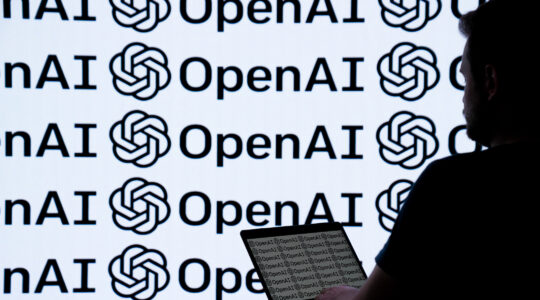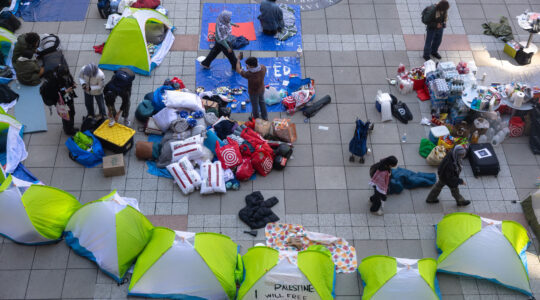Okay. Maybe I missed the point of this session.
The preview for this session said that panelists would discuss the JPPPI’s “2009 Annual Assessment on the Situation and Dynamics of the Jewish People,” including the “impact of the economic crisis on the Jewish People and b) The Israel/USA/Jewish community triangle.” No mention of Iran and Islamists and war in the preview, but I guess that I should have known given the list of speakers. Stuart Eizenstat, including the JPPI’s president, who happens to be a former IDF head of intelligence.
I guess its a product of my training, but I hear economic impact on the Jewish people and I think “how am I ever going to afford day schools.”
According to this panel, it seems that economic downturn means that Islamists are now more powerful in their fight against Israel.
The world is in an economic decline. So what does it mean for the Jewish people and Israel, according to Eizenstat?
There has been a dramatic shift of economic power to China, Brazil and Russia, and the US properly has recognized the reality of moving from the old G-8 countries to the G-20, he said. There are more countries sharing geo-political economic power, but that changes the playing field for Israel, he said.
“The US does not have the capacity to solve the world’s problems alone. It has to cooperate with countries that do not always share the US’s deep commitment to Israel,” he said.
Jews have always suffered instabilities, and Israel has already been a principal beneficiary of globalization, namely that it is at the forefront of the tech boom and much of the global shift in money is based on technology.
“I think will be to a great advantage,” he said.
But globalization and an increase in technology has its pitfalls, Eizanstat said.
Namely: “Jihadists Web sites on the internet are used for the communication and planning of terror attacks,” and “Just like the arms race during the cold war, there is a race for internet supremacy.”
Israel now needs to reach out to the china’s India’s Brazil’s of the world.
There has been a rise in radical Islamists. (“We should not approach this as a war of civilizations between West and Israel,” he said. “It is much more a war within the Muslim world. This is a battle between pro western modernizing states and pro western autocratic states and rejectionist radical Jihadist states supported by Iran,” he said.)
And Iran is close to developing nuclear power.
So what should Israel do?
“The US, notwithstanding the fact that the gap between itself and the developing world remains Israels most important ally and only dependable ally. We must do anything to keep America’s economic stability intact. There is no other country willing to tackle the kins.
Also, he said, Israel has a role to play in stabilizing the Mideast region by sharing its technology and educational resources.





